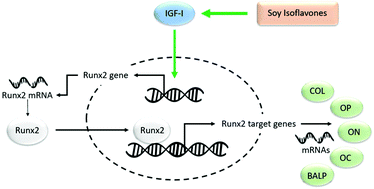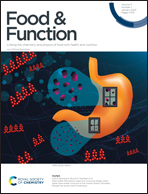Is soy protein effective in reducing cholesterol and improving bone health?
Abstract
Hyperlipidemia associated with cardiovascular health, and bone loss with regard to osteoporosis contribute to increased morbidity and mortality and are influenced by diet. Soy protein has been shown to reduce cholesterol levels, and its isoflavones may improve bone health. The objective of this study was to determine the effects of soy protein on lipid profiles and biomarkers of bone metabolism and inflammation. Ninety men and women (aged 27–87) were randomly assigned to consume 40 g of soy or casein protein daily for three months. Both soy and casein consumption significantly reduced bone alkaline phosphatase (P = 0.011) and body fat % (P < 0.001), tended to decrease tartrate-resistant acid phosphatase (P = 0.066), and significantly increased serum insulin-like growth factor-I (IGF-1) (P < 0.001), yet soy increased IGF-1 to a greater extent (P = 0.01) than casein. Neither treatment affected total cholesterol, HDL cholesterol, LDL cholesterol, or C-reactive protein. These results demonstrate that daily supplementation of soy and casein protein may have positive effects on indices of bone metabolism and body composition, with soy protein being more effective at increasing IGF-1, an anabolic factor, which may be due to soy isoflavones’ role in upregulating Runx2 gene expression, while having little effect on lipid profiles and markers of inflammation.



 Please wait while we load your content...
Please wait while we load your content...